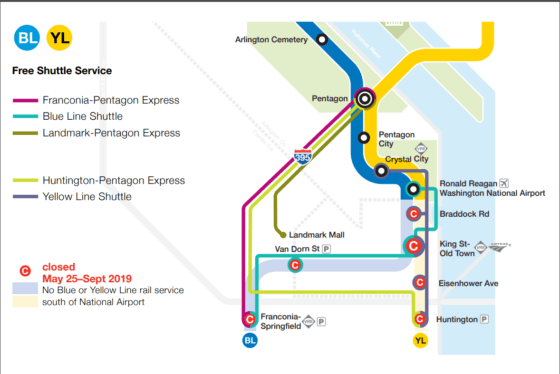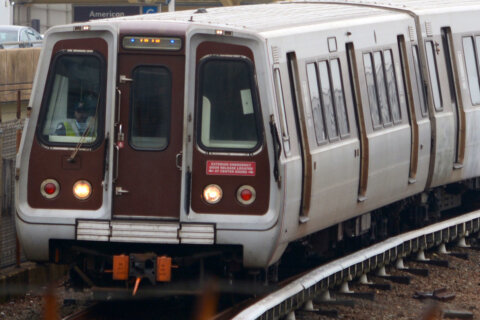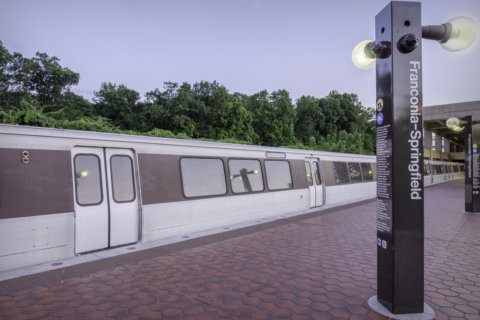Metro, which is about to undergo extensive summer track work, would receive $150 million a year for badly needed capital improvements under legislation outlined Thursday by U.S. senators from Virginia and Maryland.
If the transit agency meets certain safety and oversight reforms, the annual figure would rise to $200 million. Over the next decade, that’s potential funding of $2 billion.
But lawmakers said the transit agency must agree to not purchase its next generation of rail cars from China, amid concerns about cybersecurity. Among those concerns is the possibility that China’s state-owned company would use the rail cars for surveillance in Washington or to install malicious software.
The legislation to reauthorize federal funding over the next decade was announced at the South Capitol station on Capitol Hill by Virginia Sens. Tim Kaine and Mark Warner, and Maryland Sens. Ben Cardin and Chris Van Hollen. All of the lawmakers are Democrats.
“The federal government runs on Metro,” said Warner, noting thousands of federal workers and contractors take Metro every day. “This is an investment in the long-term safety and reliability of the Metro system.”
Metro riders have been dealing with major track work in recent years, which critics said was put off for far too long, on the aging system. This weekend, Metro begins track work that will close all Blue and Yellow line stations south of Reagan National Airport, from May 25 to Sept. 8 — the largest shutdown to date.
The lawmakers said they believe it’s important to make sure that Metro does not purchase rail cars from China, and they don’t believe the transit agency will.
“I think Metro understands,” Warner said. “The challenge is, the cars made in China are cheaper.”
But he said he believes it would be a “huge mistake” that could open up the Metro system to various risks related to cybersecurity.
“It’s a matter of national security,” Cardin said. “We will work with Metro to make sure that the Chinese technology does not get into the new equipment that is needed.”
Metro has been working to improve its cyber defenses and is even hacking into its own rail cars to improve security.
As for its overall future, Cardin said Metro is important to the entire country, given its location in Washington.
“This is the nation’s Metro system,” he said, also pointing out that during its peak hours, 40% of riders are federal workers. “We had safety issues, and we can do better.”
Lawmakers also praised the work of Metro General Manager Paul Wiedefeld, who was hired in 2015 to help return the transit system to the dependability of its first several decades in operation.
Wiedefeld has had to make numerous difficult choices regarding maintenance that was not done or neglected over the years.
“We want to give him additional tools in order to be able to deal with the safety issues,” Cardin said.
Metro has also had to deal with a decline in ridership, as it struggles with safety and maintenance matters. Fewer riders means fewer dollars, which also creates more funding pressures.
Kaine noted that making sure Metro has adequate funding is also important to the region’s continuing economic growth.
“Metro and the success of the D.C. region are completely linked and that’s why it’s so important,” he said. “We’re not always all together on every issue. On this bill, we are all together.”
Van Hollen said a House panel this week moved ahead with legislation to provide Metro funding; and he is optimistic a Senate panel will soon do the same, as the appropriations process moves forward.
To receive the annual federal subsidy, Virginia, Maryland and D.C. must each contribute $50 million to match it. They would not need to match the additional $50 million, if Metro qualifies for it.










